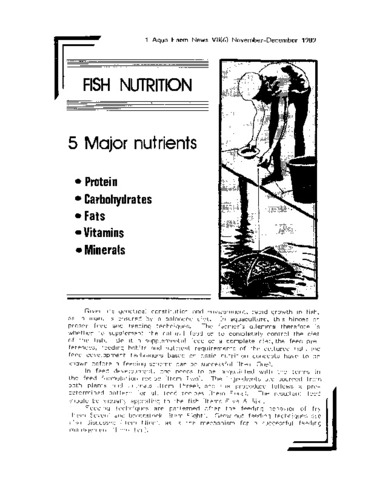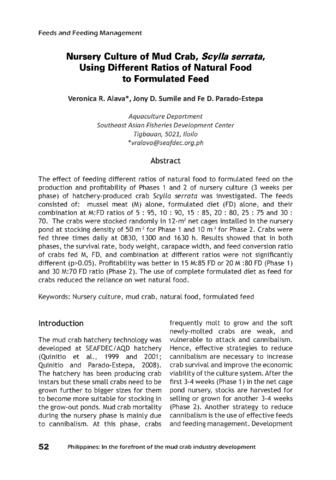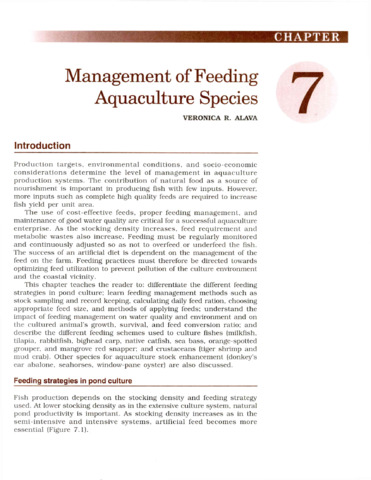| dc.identifier.citation | Catacutan, M. R., & Pagador, G. E. (2004). Partial replacement of fishmeal by defatted soybean meal in formulated diets for the mangrove red snapper, Lutjanus argentimaculatus (Forsskal 1775). Aquaculture Research, 35(3), 299-306. | en |
| dc.description.abstract | This study was conducted to evaluate the effect on growth and feed efficiencies of the mangrove red snapper (Lutjanus argentimaculatus) when dietary fishmeal is partially replaced by defatted soybean meal (DSM). In the preliminary experiment, snapper (mean weight±SD, 58.22±5.28 g) were fed in triplicate with different dietary amounts of DSM (7.8–42.2%) that were formulated to be isonitrogenous and isocaloric. After 14 weeks, survival, growth and feed efficiencies, and hepatosomatic index (HSI) did not differ. Based on these results, a feeding trial was done using a positive control diet that contained 64% fishmeal, while the other four diets had DSM levels of 12%, 24%, 36%, and 48% that replaced fishmeal protein at 12.5%, 25%, 37.5%, and 50% respectively. All diets were formulated to have about the same protein level (50%), protein to energy ratio (P/E of 25-mg protein kJ−1), and dietary energy (19.8 MJ kg−1). These were fed to triplicate groups of snapper (mean total weight tank−1±SD, 73.19±1.2 g) at 15 fish (average weight, 4.88 g) per 1.5-t tank for 19 weeks. Growth (final average weight and specific growth rate (SGR), feed conversion ratio (FCR), survival, and HSI were not significantly different (P>0.05) while protein efficiency ratios or PERs were similar in treatments with DSM. Among snapper fed DSM, haematocrit value was significantly lower in fish fed 48% DSM and not different with fish fed 36% DSM. Whole-body crude fat of snapper fed 48% DSM was lowest while the crude protein and nitrogen-free extract (NFE) levels were highest. Histopathological analysis showed that lipid vacuoles in livers of snapper were reduced in size as dietary DSM increased. There was slight lipid deposition in the liver of snapper at 36% DSM while at 48% DSM it was excessive and hepatocytes were necrotic. There were no differences in the histology of snapper intestine. Under the experimental condition of this study, DSM can be used in snapper diets at 24% (replacing 25% of fishmeal protein) based on growth, survival and feed efficiencies, and histology of liver and intestine. For a lesser diet cost, an inclusion level higher than 24% DSM is possible with a bioavailable phosphorus supplement. | en |



